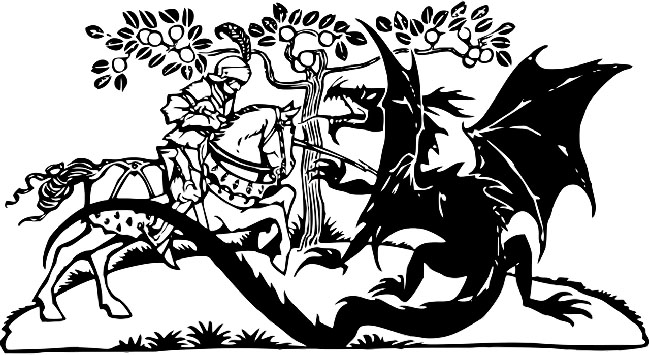While there are games where dragons feature as enemy encounters, I always want to be the dragon. There’s the classic Spyro series to fulfill that wish, especially with the upcoming remaster it’s receiving. For something different, and likely quicker to access, check out Choice of the Dragon, playable for free online.

“Choice of the Dragon” was written by Dan Fabulich and Adam Strong-Morse for the California-based company Choice of Games.
Choice with a Skill Check Bonus
This is a narrative, purely text-based game where you play as a dragon, with a “choose-your-own-story” flavor. Comparisons to books of the same storytelling type can be drawn, but Choice of the Dragon has distinctive gameplay features, such as an automatic system for building up your dragon’s different skills based on what actions you choose to take.
For example, deciding on a clever strategy will increase intelligence, or electing to fight your way through a problem will boost strength.
The full effects of this system can come up in delightfully surprising ways. There was one moment where the game informed me that because of certain actions I took building up skill points in my dragon’s composure and restraint, my dragon was able to avoid being distracted by a petty dispute that could have caused problems.
I enjoyed how the skills seemed to correlate with building a personality for your dragon. For example, a physically stronger dragon could be seen as more cocky, while a smarter dragon could be viewed as more cautious.
Scale Color and Authentic Battle Damage
There is also a customization process for your dragon’s appearance, gender, pronouns, and name that is done through written prompts and textual imagery alone. In this and throughout the game, Choice of the Dragon fully embraces its text-based genre in terms of only using words to spark the player’s imagination.
Gameplay description can range from detailing the scale color you select for your dragon, to a blow-by-blow account of the physical damage your dragon can endure (and even get scarred from).
The Conqueror’s To-Do List
Through the distinct perspective of a dragon—following him from birth to maturation—the main game is largely about how you want to approach gaining and expanding your territory and power. Will you use brute force, or rely more on cunning? Will you try to strike a balance?
The game gets even more creative with the details of your dragon’s conquest, filled with scenarios such as assembling your own army of minions and managing their behavior, fighting with your own family over territory, deciding whether you want your dragon to be worshipped as a deity, aiding humans who have sworn their loyalty to you in their conflict with a rival kingdom, and facing down a magical conspiracy.

At some point the game even provides a quest for romance, with several different dragons of any gender to choose from—though successfully finding mutual love is not guaranteed. The game is refreshingly open in small ways: as your dragon could be any gender with any pronouns, your dragon can romance any gender too, i.e. lgbtq+ dragons are an option.
From player customization to romantic side quests set against a fantasy medieval world, playing this felt a little bit like playing an entry from BioWare’s Dragon Age series, but on a smaller, more intimate scale, through a unique perspective, and through words and imagination alone.
If Dragon Age is an epically thick door stopper book, Choice of the Dragon is a slim novella.
A Draconic Mindset
The game can be hilarious, even carrying a dark sense of humor due to the story’s commitment to exploring the intimidating nature of dragons, rather than going in the direction of letting a dragon be entirely good.
In this choice-based game, there is no clear good path. Instead, there are shades of gray.
The option closest to a good path is playing your dragon as more of a noble monster type, full of menace but with an honorable streak, inclination toward restraint, and a more thoughtful approach.
That was definitely my dragon. When it comes to games that focus on choice, I actually enjoy playing as the ideal hero for the most part, trying to see what I can get away with through words alone and avoiding a fight. But in Choice of the Dragon, I was always amused whenever what seemed like the more merciful choice wasn’t that merciful after all.

For example, I had my dragon give a queen he was extorting more time to think his demands over. I had already decided to spare her life, since I thought to eliminate her would be excessive, and that a living queen would be more useful in getting her kingdom to cooperate with my dragon’s new rule. I thought after all that, I could continue to exercise restraint, and give her more of a small break then.
But when I chose to do this, I was also overriding my own concerns about likely giving the queen time to become more of a problem for me. I told myself that my dragon was powerful enough to overcome any counterattack she could come up with during the time I gave her.
I considered all this, only to soon realize the option I chose only gave the queen five more minutes to think. That got a laugh out of me. I also felt impressed with the game itself actually addressing my earlier concerns, with my dragon pointing out that he wasn’t about to give the queen more time to plot against him.

I enjoyed that as well—how my dragon had skills and character traits I could end up choosing, but I could not control him entirely. It was a thrill to find that there were actions whose results could end up surprising me, or that my dragon could behave differently from what I had intended.
There was a sense of discovery with seeing how my dragon’s character unfolded due to the gameplay actions I chose for him. At times it felt more like I was guiding my dragon along, as if his will and personality were too powerful even for my complete control.
Some Turbulence Along the Way
It’s not all smooth flying with Choice of the Dragon though. This game has its drawbacks just like any other.
While the romance side quest is fun, it seems easy to fail. It happens a bit abruptly, and the game does little to prepare the player for this, not even offering little vague hints beforehand on what dragons romantically want, or how to succeed at this.
The player can earn gold, which is used as an abstract measure of accomplishment, but there seems to be no practical use for it. While in terms of plot it could work with a dragon preferring to hoard gold rather than spend it on anything, it doesn’t seem to justify the degree of gameplay focus it gets.
But these are minor snags. The game shines overall, especially with its creativity in execution of story concept, character perspective, gameplay scenarios, and other areas.
A Roaring Good Time Comes to an End
Choice of the Dragon is fun, it feels different, and it serves as a refreshingly short affair. It was a nice change of pace to sit and play a game through to the end in one sitting. It really is an effective text-based game, skillfully combining the pleasures of reading and gameplay, feeling like a book that couldn’t be put down, a game that couldn’t be stopped until the surprisingly quiet, reflective, and soothing ending was reached.



